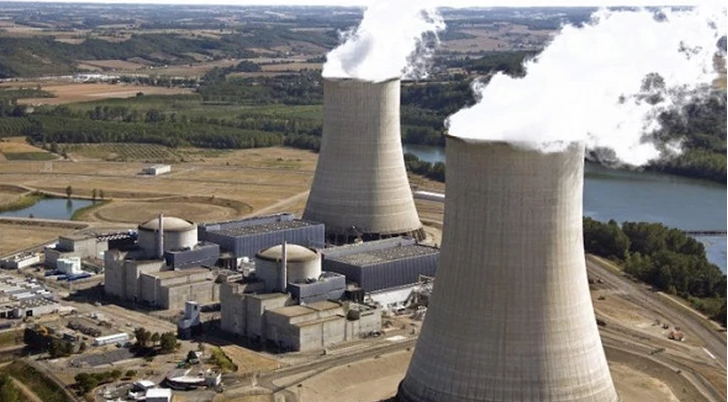South Africa has announced its intention to build new nuclear power stations to boost its electricity supply and address its ongoing energy crisis. The government said it would invite bids from potential suppliers to construct the plants, which are expected to take at least a decade to complete.
However, the plan has been met with fierce opposition from critics who accuse the government of favoring Russia as its “preferred partner” and ignoring the environmental and financial risks of nuclear energy. They also question the legality and transparency of the procurement process, which has been marred by allegations of corruption and political interference.
South Africa is the only country in Africa with a commercial nuclear power plant, the Koeberg Nuclear Power Station near Cape Town, which accounts for around 5% of its electricity production. The government has long expressed its interest in expanding its nuclear capacity, citing the need to diversify its energy mix and reduce its reliance on coal, which contributes to high levels of greenhouse gas emissions and air pollution.
In 2014, South Africa signed a controversial nuclear deal with Russia’s state-owned nuclear agency Rosatom, worth an estimated $76 billion, to build up to eight new reactors. The deal was shrouded in secrecy and challenged in court by civil society groups, who argued that it violated the Constitution and the Public Finance Management Act. In 2017, the Western Cape High Court ruled that the deal was unlawful and unconstitutional and set it aside.
However, the government has not given up on its nuclear aspirations and has revived its plans to procure new plants, despite the lower demand projections and higher capital costs. The Department of Mineral Resources and Energy said it had received the approval of the energy regulator and the cabinet to initiate the tender process, which would be open and competitive.
But the main opposition party, the Democratic Alliance, has slammed the move as “reckless and irrational”, claiming that Rosatom is still the government’s favored bidder and that the country cannot afford the massive debt that would result from the nuclear deal. The party also said that the government should focus on investing in renewable energy sources, such as solar and wind, which are cheaper, cleaner, and more sustainable.
South Africa is not the only African country that has shown interest in nuclear power as a solution to its energy challenges. Several other countries, such as Egypt, Ghana, Kenya, Morocco, Niger, Nigeria, and Sudan, have engaged with the International Atomic Energy Agency (IAEA) to assess their readiness to embark on a nuclear program. Some of them have also signed agreements with Russia or other countries to build nuclear power plants.
However, experts have warned that nuclear power is not a viable option for most African countries, given the high costs, complex technology, safety concerns, and security risks involved. They have also pointed out the potential environmental and social impacts of nuclear waste disposal, uranium mining, and water consumption. They have urged African governments to explore other forms of renewable energy, such as hydro, geothermal, biomass, and biogas, which are more suited to the continent’s needs and resources.
Despite the criticism and controversy, South Africa’s government seems determined to pursue its nuclear vision and hopes to have the first new plant operational by 2032 or 2033. Whether this will be a boon or a bane for the country and the region remains to be seen.
Source: MSN



